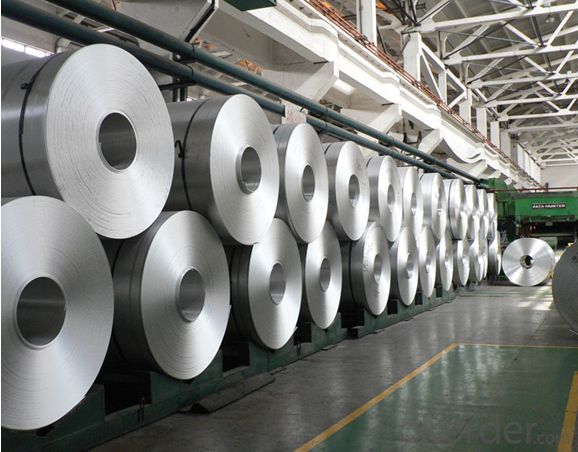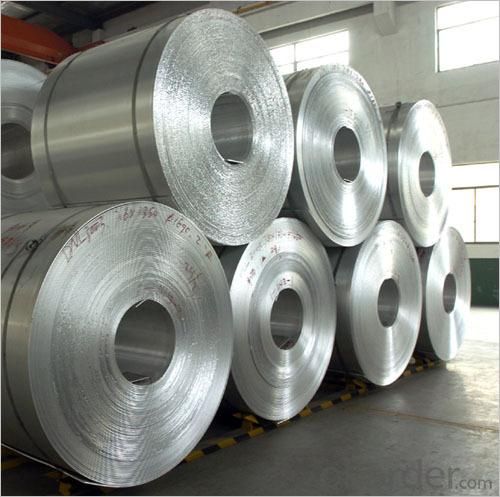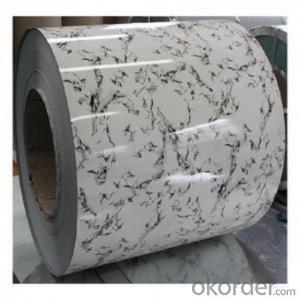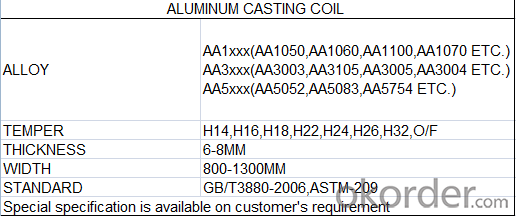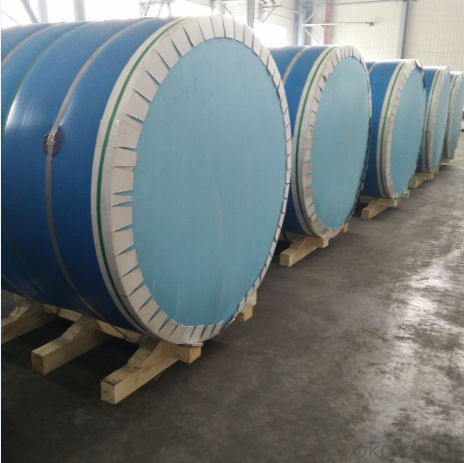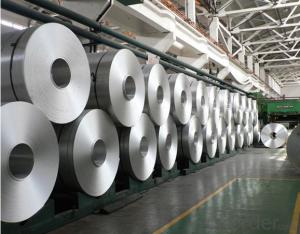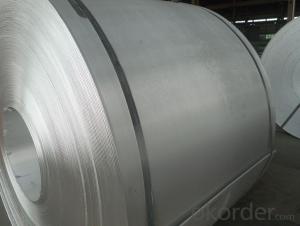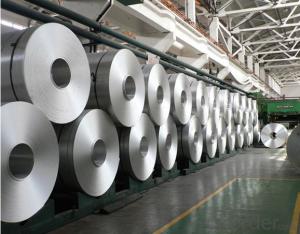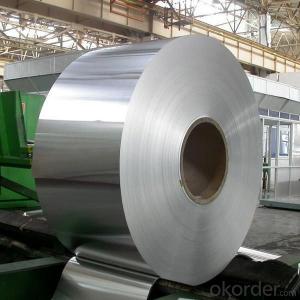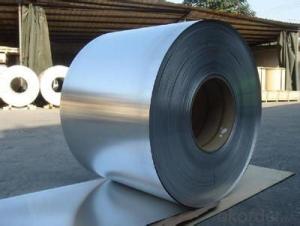Aluminum Master Cast Coil for Manufacturer
- Loading Port:
- Shanghai
- Payment Terms:
- TT OR LC
- Min Order Qty:
- 100 m.t.
- Supply Capability:
- 100000 m.t./month
OKorder Service Pledge
OKorder Financial Service
You Might Also Like
1.Structure of Aluminum Master Cast Coil for Manufacturer:
Aluminum Master Cast Coil for Manufacturer is used in the factories that produce aluminum coil from 0.2mm to 6mm by thickness. Hot rolled y cold rolled son available. The thickness of Aluminum Casting Coil for thin coil is about 6-8mm. You can choose the alloys as your using and we will do our best to meet your requests.
2.Main Features of the Aluminum Master Cast Coil for Manufacturer:
• Smooth surface
• High manufacturing accuracy
• High strength of extension and yield
• Low tolerance
• Strict quality control
• Well packaged
3. Aluminum Master Cast Coil for Manufacturer
4. Production Process of Aluminum Casting Coil for thin coil and sheet
Cold Rolled
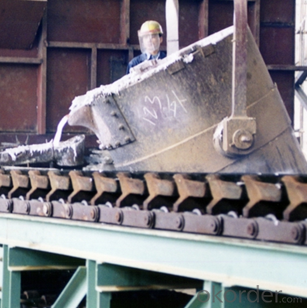
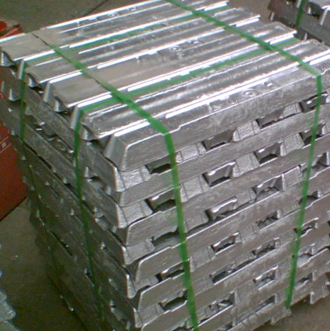
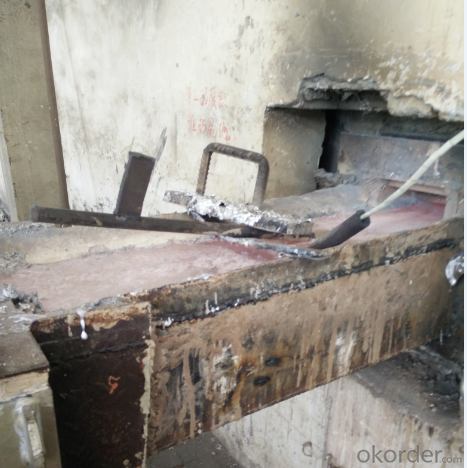
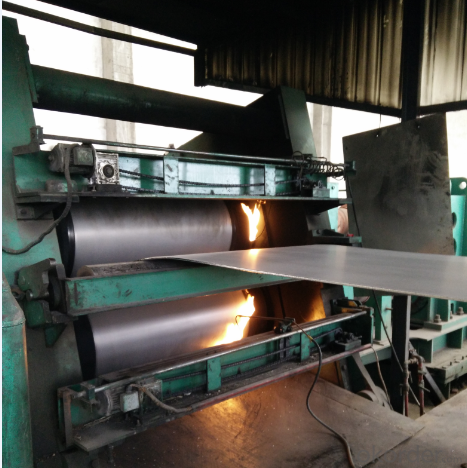
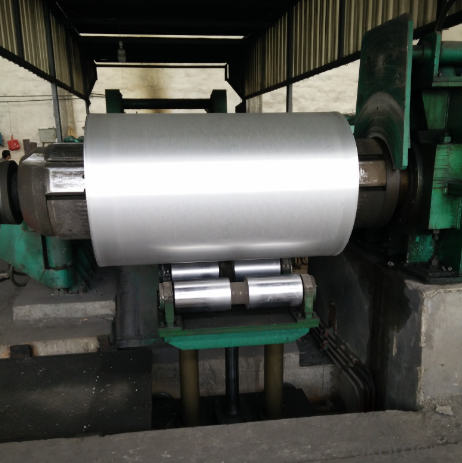
Hot rolled
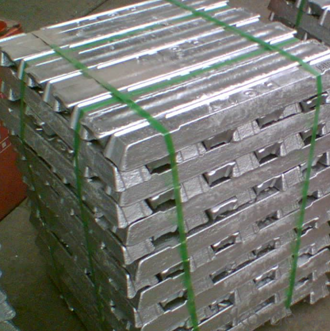
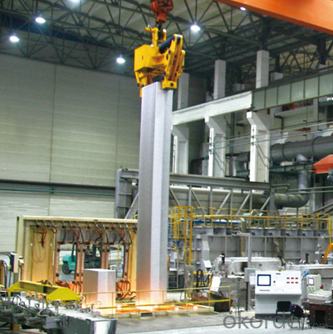
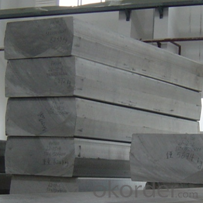
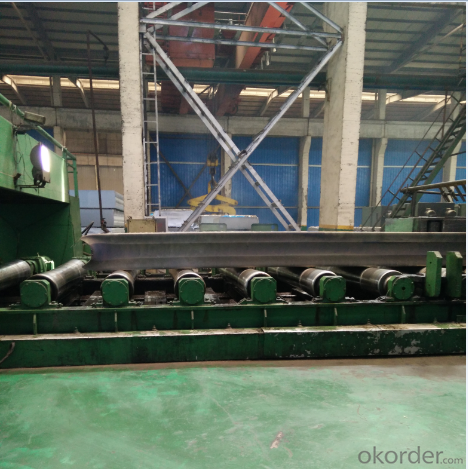
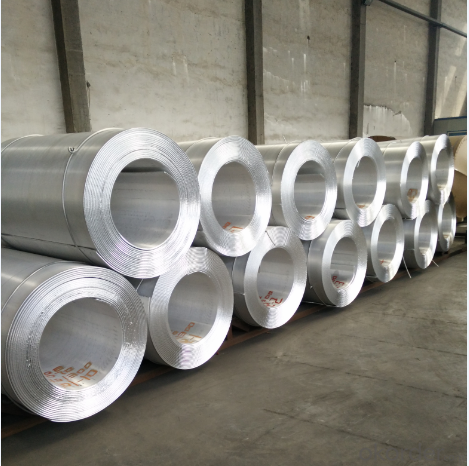
5.FAQ
We have organized several common questions for our clients,may help you sincerely:
① What is the MOQ of Aluminum Master Cast Coil for Manufacturer
Usually the MOQ is 150 tons, but we also can make solution according to clients’ situation.
②How about your company?
A world class manufacturer & supplier of aluminum coil and alloy blanks. Aluminum production base is comprised of 18 aluminum annealers, 10 coil and foil mills, 4 continuous production lines, 2 hot rolling production line and 3 prepainted lines.
Export 5000 tons per month to Asia, America and Middle East. Always do the best for our clients.
③Can you guarantee the quality of the products?
We are responsible for the quality of materials in a reasonable period of time to get a long-term cooperation with clients and we are glad to arrange and coordinate any third party inspection for you.
④What is the delivery time after purchase?
15 day with normal specification after receiving client’s deposit or correct LC
- Q: How do aluminum coils contribute to reduced material waste?
- Aluminum coils contribute to reduced material waste by optimizing the manufacturing process. They enable manufacturers to produce custom-sized aluminum sheets, eliminating the need for excessive trimming or cutting of larger sheets. This results in reduced scrap and material waste, as only the required amount of aluminum is used, minimizing offcuts and increasing overall efficiency.
- Q: Can aluminum coils be used in electrical transformers?
- Yes, aluminum coils can be used in electrical transformers. While copper is the most commonly used material for transformer windings, aluminum has also been increasingly used due to its cost-effectiveness and lighter weight. Aluminum coils are typically used in distribution transformers, which are smaller in size and operate at lower voltages. However, there are certain considerations to bear in mind when using aluminum coils in transformers. Aluminum has a lower conductivity than copper, so the aluminum coils need to have larger cross-sectional areas to compensate for this. Additionally, aluminum has a higher coefficient of thermal expansion than copper, so proper precautions must be taken to account for the differential thermal expansion between the aluminum windings and other transformer components. Overall, aluminum coils can be a suitable choice for specific transformer applications, but the design and manufacturing process must be carefully executed to ensure optimal performance and reliability.
- Q: Can aluminum coils be used for industrial piping?
- Industrial piping can indeed utilize aluminum coils. Aluminum, being a versatile and lightweight material, presents numerous advantages for industrial piping purposes. Its exceptional resistance to corrosion makes it a suitable choice across various industries such as chemical, petrochemical, and food processing. Moreover, aluminum coils are effortlessly manageable and can be molded into diverse configurations and dimensions, providing flexibility when designing and installing piping systems. Furthermore, aluminum's commendable thermal conductivity proves advantageous for applications that necessitate heat transfer. Nevertheless, it is crucial to carefully contemplate the specific requirements of the industrial process and seek advice from professionals to guarantee that aluminum coils are appropriate for the intended application.
- Q: Are there any limitations on the bending or shaping of aluminum coils?
- Yes, there are limitations on the bending or shaping of aluminum coils. Aluminum has a certain level of elasticity and ductility, which allows it to be bent or shaped to a certain extent. However, excessive bending or shaping can lead to cracking, deformation, or even breakage of the aluminum coils. Additionally, the thickness and temper of the aluminum coils can also affect their ability to be bent or shaped. Therefore, it is important to consider these limitations when working with aluminum coils to ensure their structural integrity is maintained.
- Q: What are the different surface treatments for aluminum coils?
- Aluminum coils can undergo various surface treatments, each offering distinct properties and benefits. The options for treating aluminum coils include: 1. Mill Finish: This is the natural, untreated surface of aluminum coils straight from the mill. It has a slightly rough texture and is commonly used when appearance is not a primary concern. 2. Anodized Finish: Anodizing, an electrochemical process, forms a protective layer on the surface of the aluminum coil. This treatment enhances corrosion resistance, durability, and offers a wide range of color choices. 3. Painted Finish: Aluminum coils can be coated with different paint systems to improve appearance and prevent corrosion. Painted finishes provide a vast selection of colors, gloss levels, and textures, allowing for customization based on specific design needs. 4. Polished Finish: Polishing, a mechanical process, creates a smooth and reflective surface on the aluminum coil. This treatment is often used for decorative purposes, providing a high-quality and visually pleasing finish. 5. Brushed Finish: Brushing involves mechanically brushing the surface of the aluminum coil in parallel lines, creating a distinctive texture. This treatment is commonly utilized in architectural and interior design applications. 6. Embossed Finish: Embossing is the process of creating raised or recessed patterns on the surface of the aluminum coil. This treatment adds texture, enhances strength, and can be used for decorative purposes or to improve grip in certain applications. 7. Laminated Finish: Lamination involves applying a layer of protective film or coating to the surface of the aluminum coil. This treatment adds extra protection against scratches, abrasion, and UV rays, making it suitable for outdoor use. Each surface treatment option offers its own advantages and is selected based on specific application requirements, such as corrosion resistance, durability, aesthetics, and functionality.
- Q: I was at an art festival and saw one of the most unique displays ever. The artist had painted abstract art on a piece of aluminum (or some type of aluminum type sheeting) I, being a novice artist for many years, was very intrigued and would LOVE to learn more about it. I've done searches on the internet, to no avail. Anyone have any ideas?
- I've known a couple of people who do this, you might try a search on Floating Panel. You could try to search out things on an artist called Gary Hume, as I know that his earlier paintings, certainly the ones for which he's known, were executed on aluminium. From what I remember of people doing this (some one on my MA made paintings on aluminium) the trick is in the priming, it being a non-pours surface. You need to rough the ground considerably and prime quite thickly. You also need to baton on the back, this will allow you to attach to the wall without ruining the face of the support, and prevent the possibility of warping. What looks great is if you recess the batons from the edge of the support, so that when against the wall they cannot be seen, this gives the appearance of hovering, and shows the thinness of your support. Another reason you might not be getting too many hits on your searches is the spelling, while not incorrect you might find art suppliers using the English, rather than the American spelling; aluminium rather than aluminum. I know that sounds petty but it might make a difference. The only other thing I know, while finding it a great surface to work on, smooth, bright, the artist I know also found it very expensive.
- Q: What are the ideal materials for crafting a lampshade and why are they preferred?
- <p>The best material for making a lampshade depends on the desired aesthetic and functional requirements. Fabric is often preferred for its ability to diffuse light and provide a warm glow, with materials like cotton or linen being popular choices for their durability and texture. For a more modern look, materials like acrylic or glass can be used, offering a sleek appearance and the potential for more direct light. Paper is also a good option for its cost-effectiveness and the variety of textures and colors available. Ultimately, the best material is one that complements the lamp's design and the room's d茅cor while fulfilling the necessary light diffusion and safety requirements.</p>
- Q: what is the final temperature of 250g of water whose initial Temperature is 25 C if 80-g of aluminum initially at 70 C is dropped into the water? The specific heat of aluminum is 0.215 cal/C g how do you do it? our teacher did not show us how and it is not in the book
- Given Data :-- Mass : Aluminium m(a) = 80 g, Water m(w) = 250 g Initial Temperature : Aluminium t? = 70 C and Water t?' = 25 C Final Temperature of both ( aluminium and water ) = T C (assume) Since Aluminium is initially at a temperature higher than that of water, it (aluminium) will lose heat to water . Heat lost by Al = Q = mass of Aluminium x sp.heat capacity of Aluminium x Temp. change = Q = 80 x 0.215 x ( 70 - T ) cal Heat gained by water = Q' = mass of water x sp.heat capacity of water x Temp. change = Q' = 250 x 1 x ( T - 25 ) According to principle of calorimetery . = Heat lost by aluminium = heat gained by water. = 250 x 1 x ( T - 25 ) = 80 x 0.215 x ( 70 - T ) = T = 27.9 C .... ( Rounded to one decimal place )...... Answer Answer .
- Q: actually pollute more than the process of extracting it from earth and producing new aluminum?I saw a report about 5 years ago on this and was wondering if anyone else had info on this subject.
- I don't know the specifics, but I know it's not more than the extraction process. When aluminum is mined, it is in the form of bauxite ore. From this ore, only about half contains aluminum oxide. Then, from the mass of aluminum oxide (alumina), only about half of that will yield the pure aluminum we use for cans, airplanes, etc. So for every 2000 pounds that are mined, we only get about 500 pounds of aluminum. The process is extremely energy intensive and tears up the landscape where bauxite is mined. Transport adds to the pollution. Some of the biggest bauxite producers in the world are China, Russia, Canada, the United States, Australia, and Brazil, so overseas transport is frequently involved, especially in countries that use a lot of it. Furthermore, it is often shipped in bauxite or alumina form, when it is heavier to carry. Aluminum recycling, however, starts with the pure product and ends with the pure product, and the process is fairly quick. The aluminum can you recycle today will return to shelves within about 60 days. Furthermore, aluminum does not degrade in quality like some other materials so it can be reused indefinitely. The transport is also cut significantly, as recycled aluminum might only travel 100 miles or so to be refabricated.
- Q: Are there any limitations to using aluminum coils?
- Yes, there are several limitations to using aluminum coils. Firstly, aluminum coils are more expensive compared to other coil materials such as copper. This can be a limiting factor for individuals or businesses with budget constraints. Secondly, aluminum coils have lower thermal conductivity than copper coils. This means that they are less efficient at transferring heat, which can result in decreased performance in some applications. Additionally, aluminum is more susceptible to corrosion and oxidation compared to other materials. This can be a limitation in environments that are highly corrosive, such as coastal areas or industrial settings. Furthermore, aluminum coils are generally not suitable for high-pressure applications. They are more prone to leaks or failures under high pressure, which can limit their use in certain HVAC systems or refrigeration units. Lastly, aluminum coils are not as malleable as copper coils, making them more difficult to work with during installation or repair. This can lead to increased labor costs or potential damage to the coils during handling. Overall, while aluminum coils have their advantages such as being lightweight and environmentally friendly, they also have limitations that need to be considered based on the specific application and requirements.
Send your message to us
Aluminum Master Cast Coil for Manufacturer
- Loading Port:
- Shanghai
- Payment Terms:
- TT OR LC
- Min Order Qty:
- 100 m.t.
- Supply Capability:
- 100000 m.t./month
OKorder Service Pledge
OKorder Financial Service
Similar products
Hot products
Hot Searches
Related keywords


